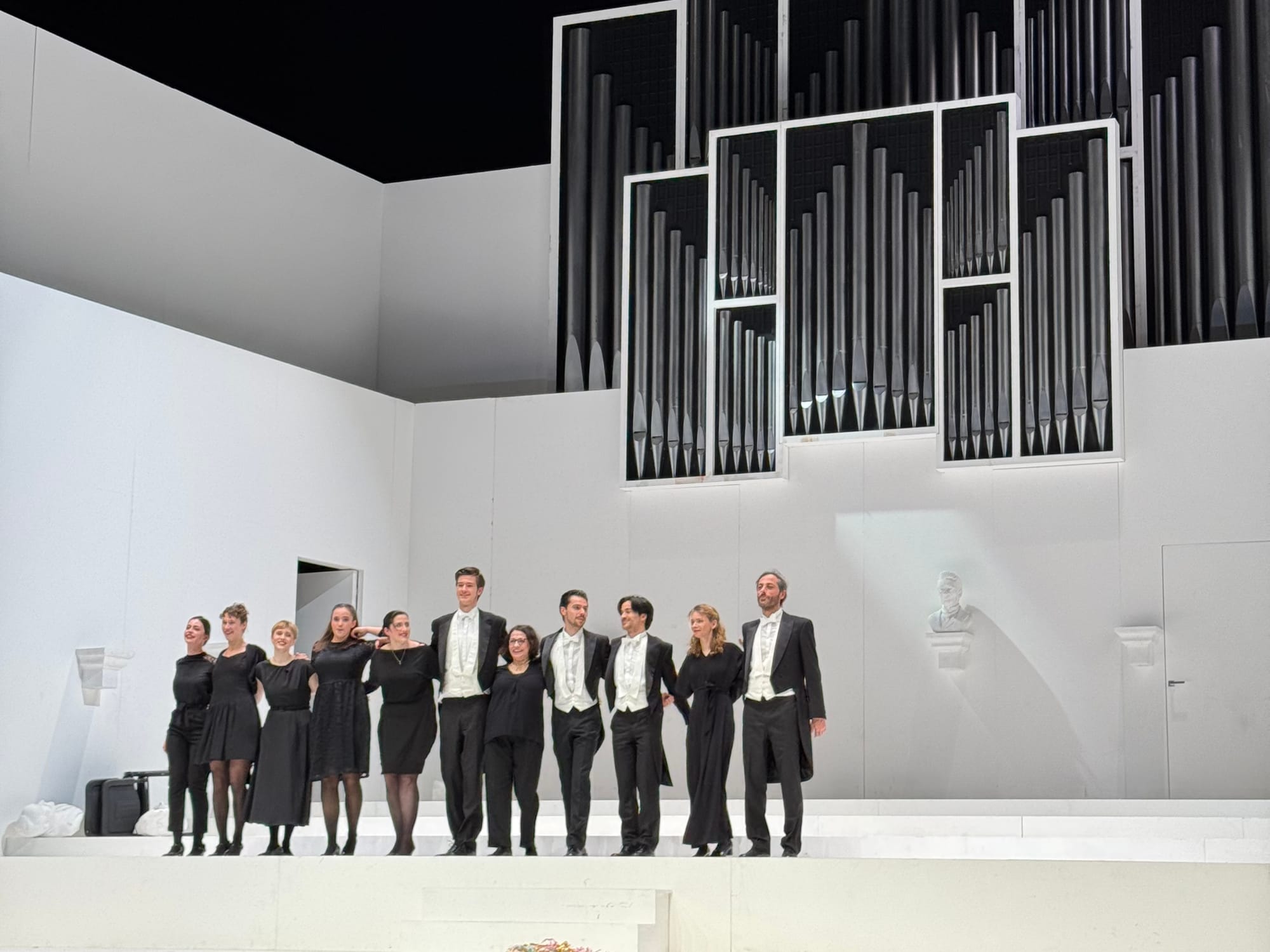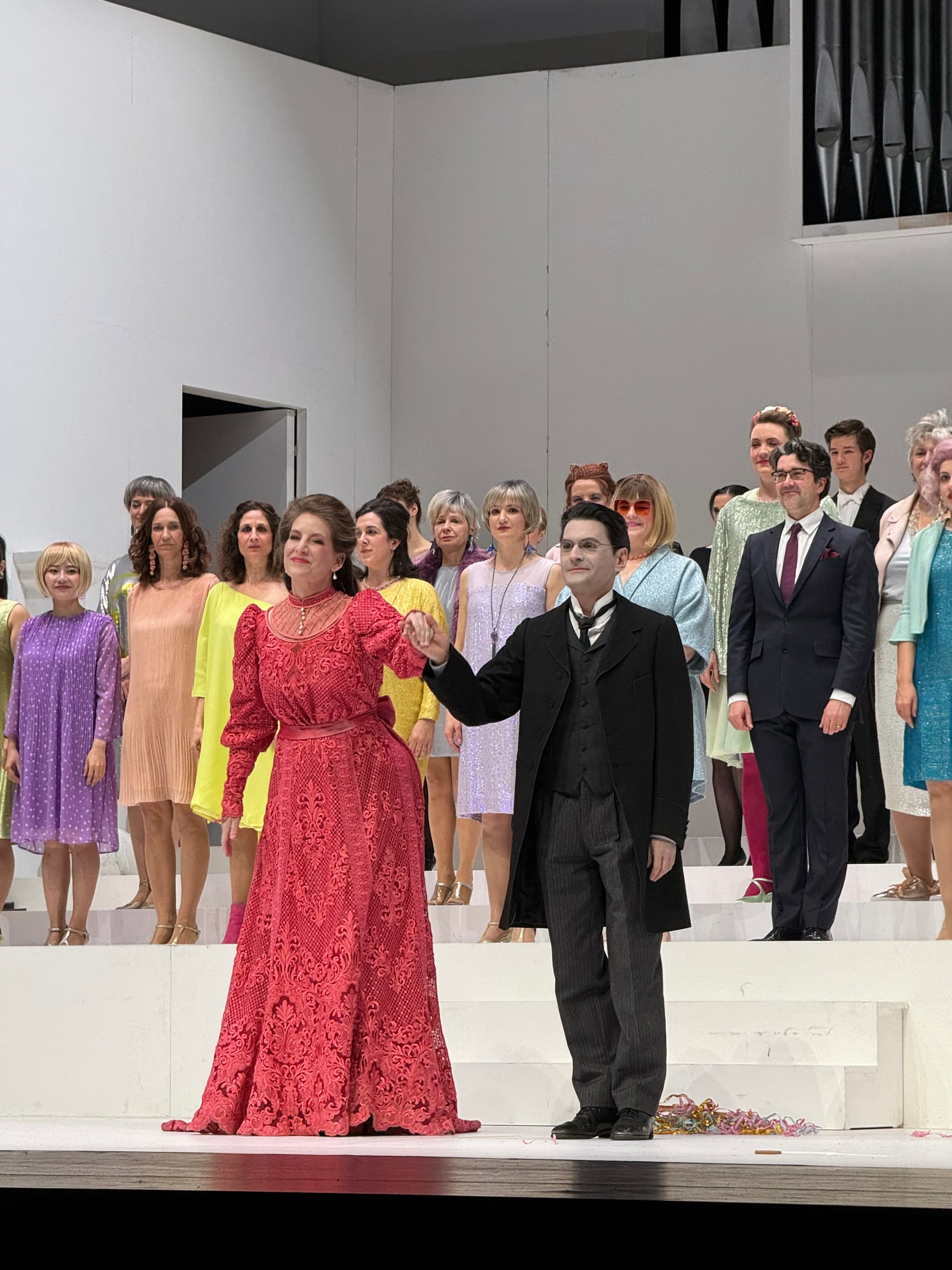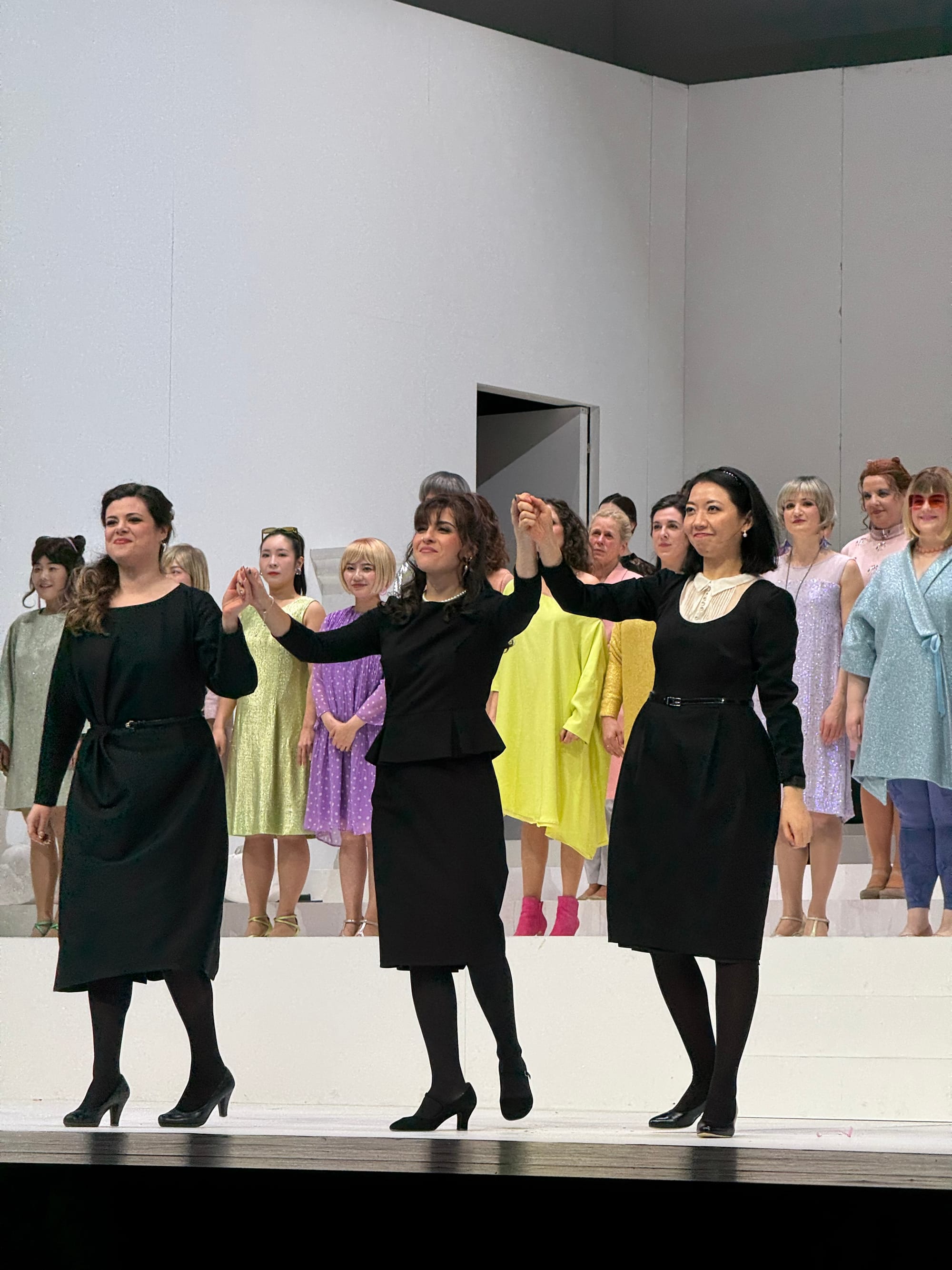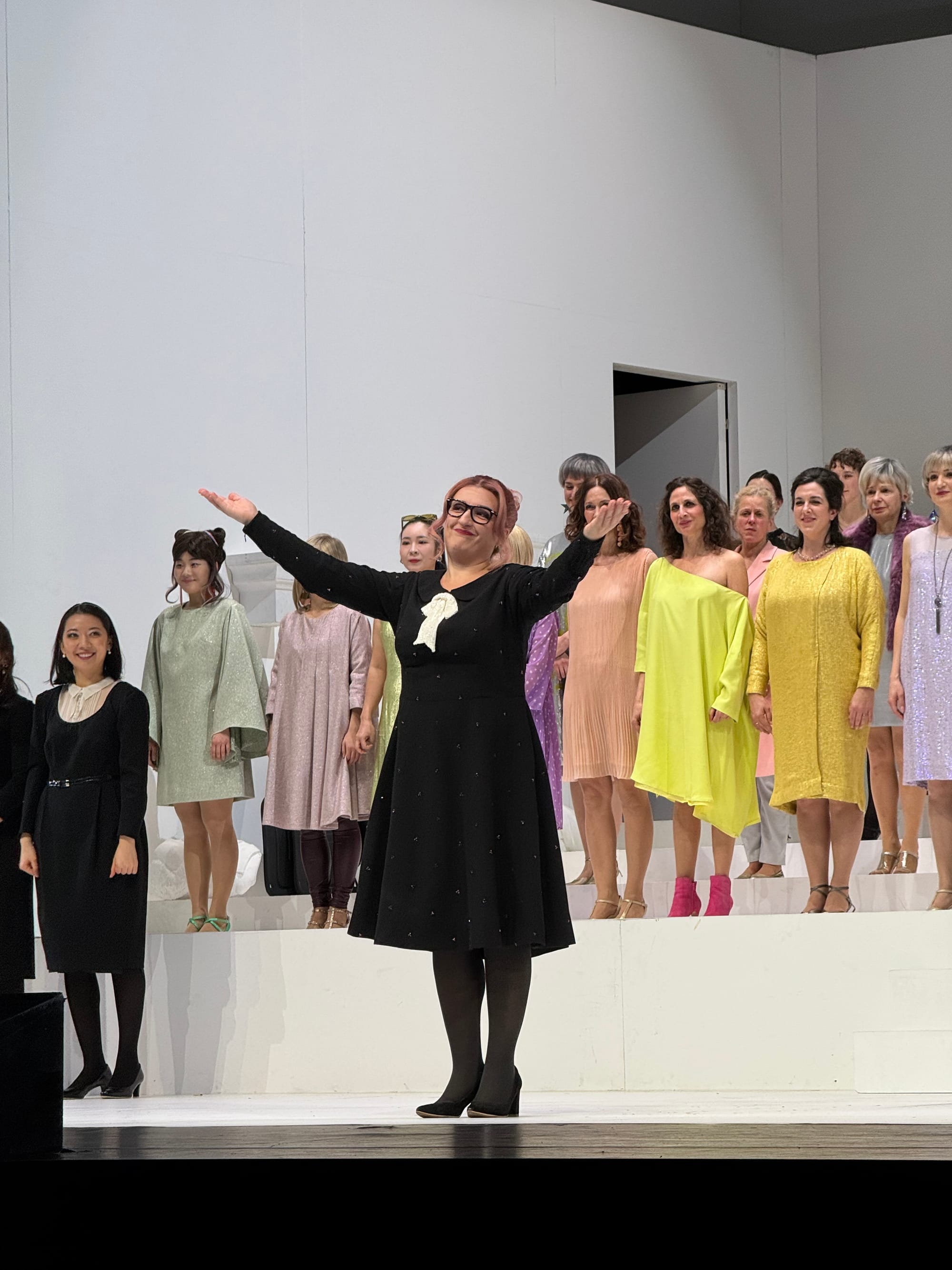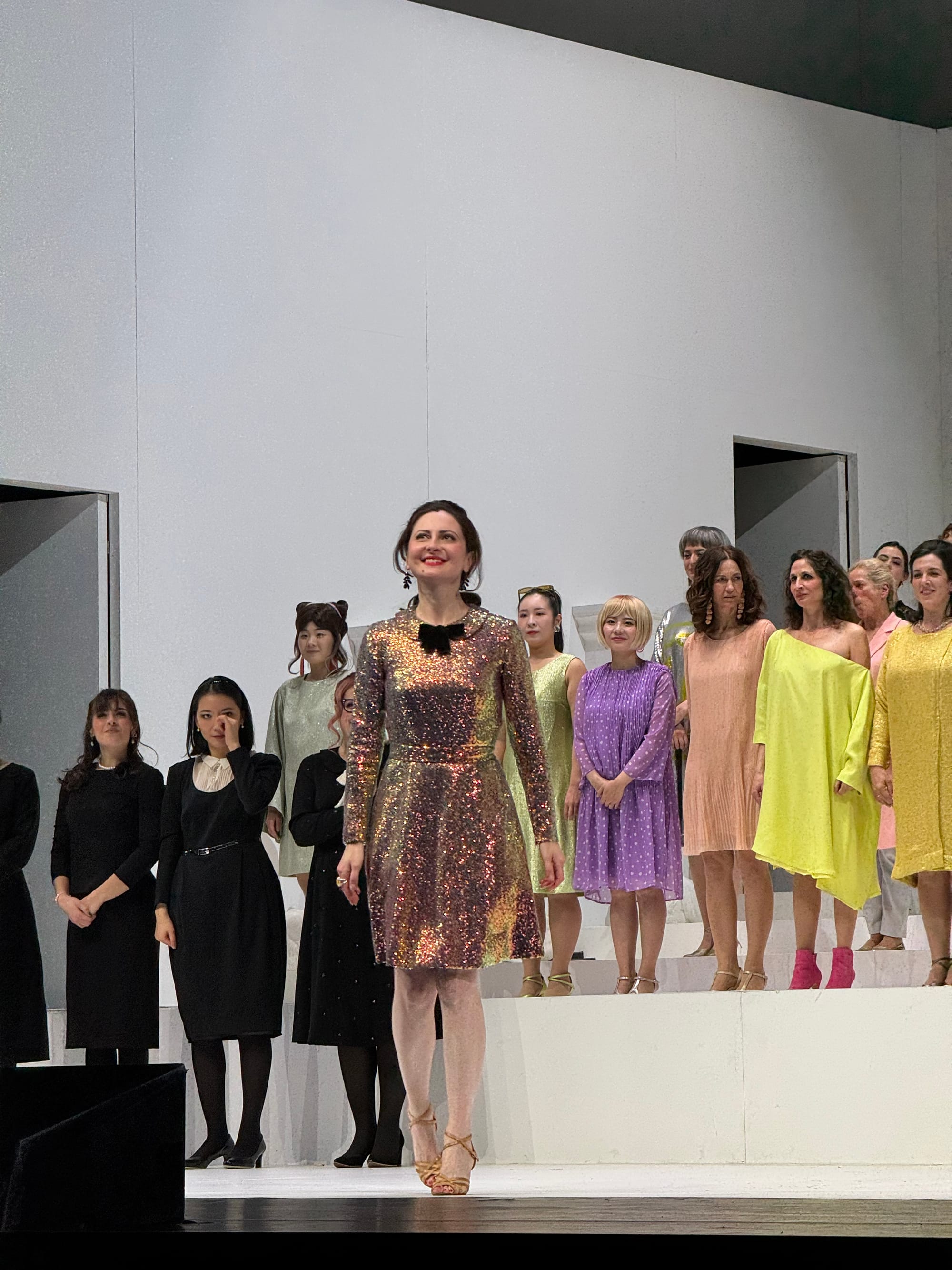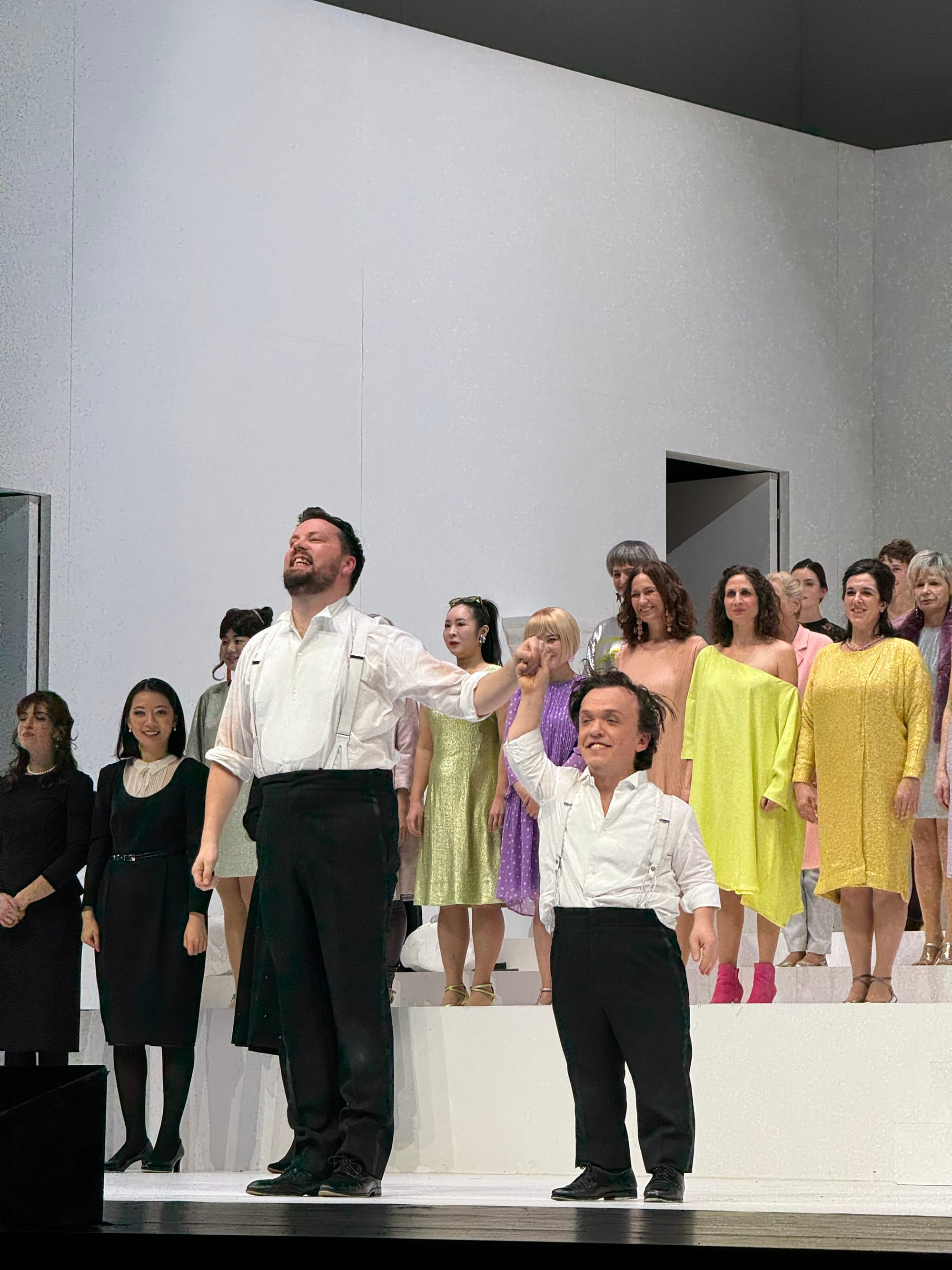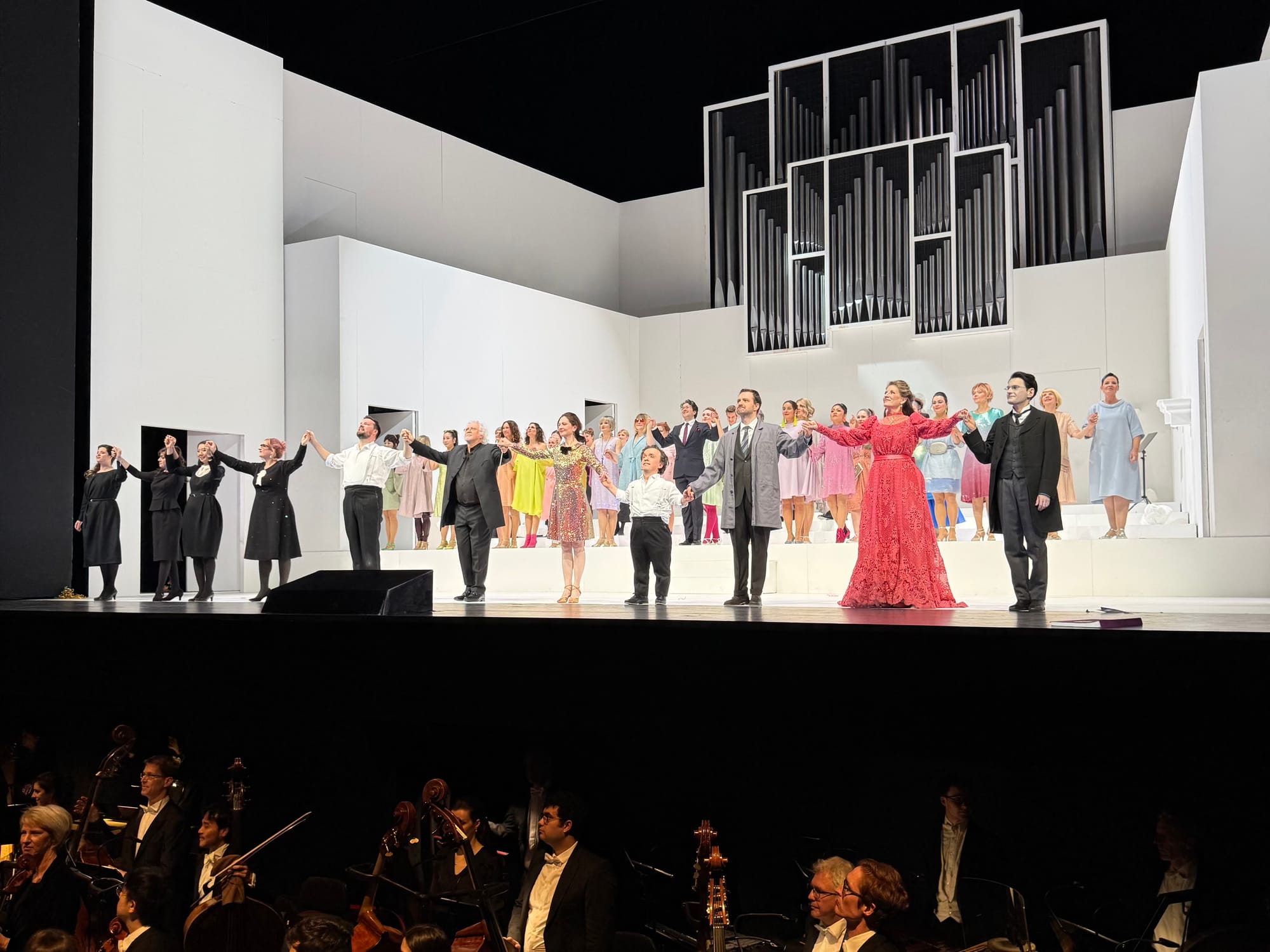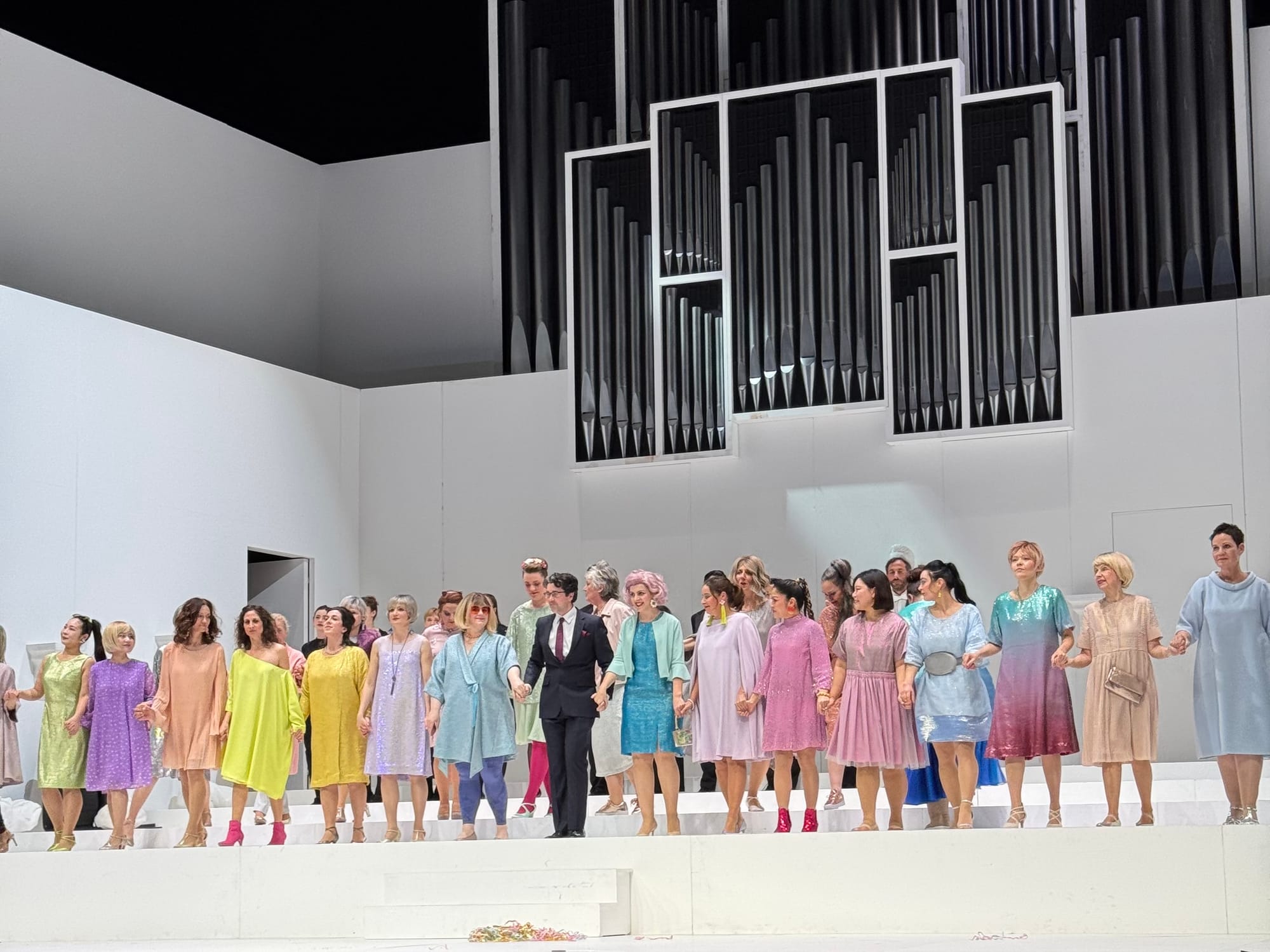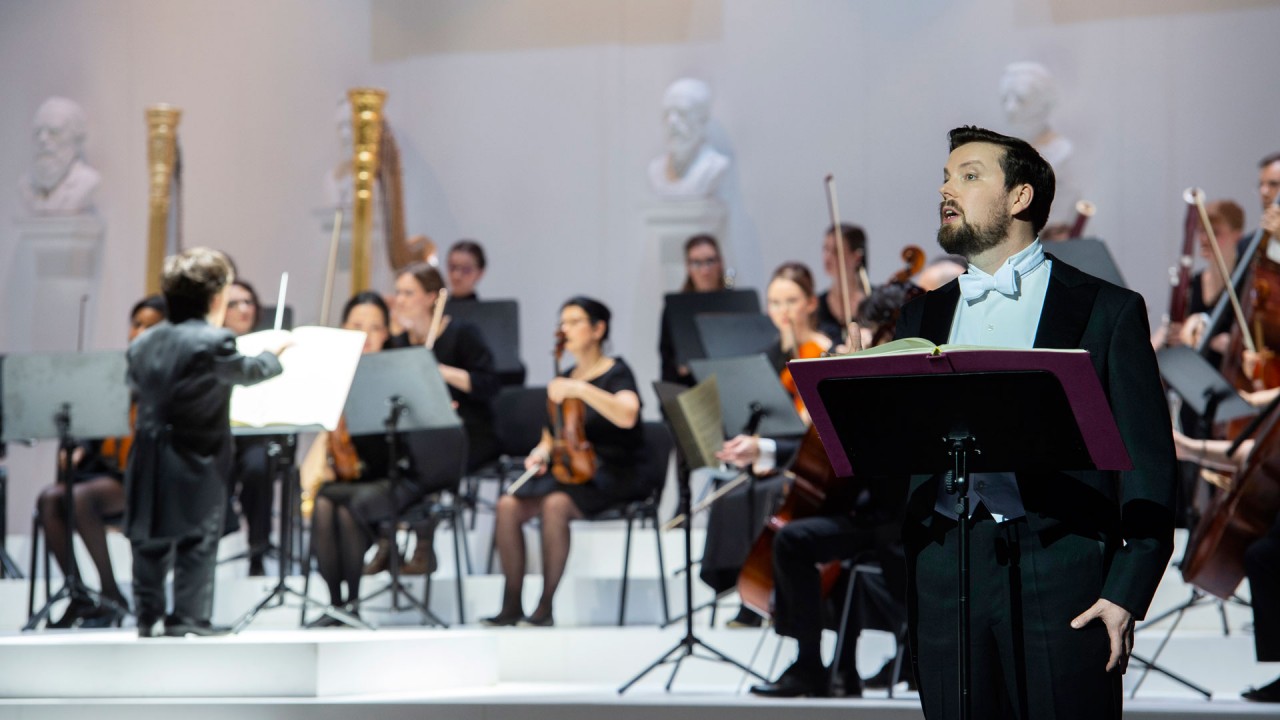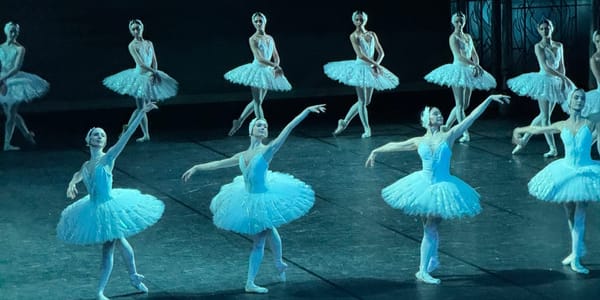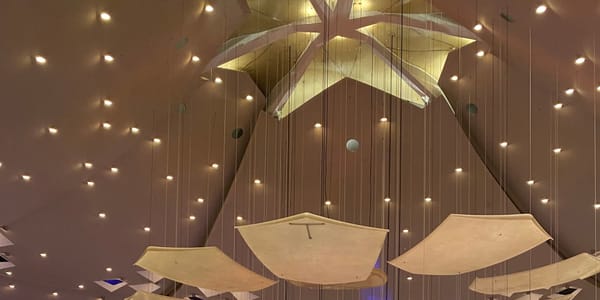Der Zwerg at Deutsche Oper Berlin
This ZWERG is not just a tragic story—it is an uncompromising reflection on how society’s gaze destroys the vulnerable. The production is a theatrical and emotional tour de force that leaves the audience reeling.
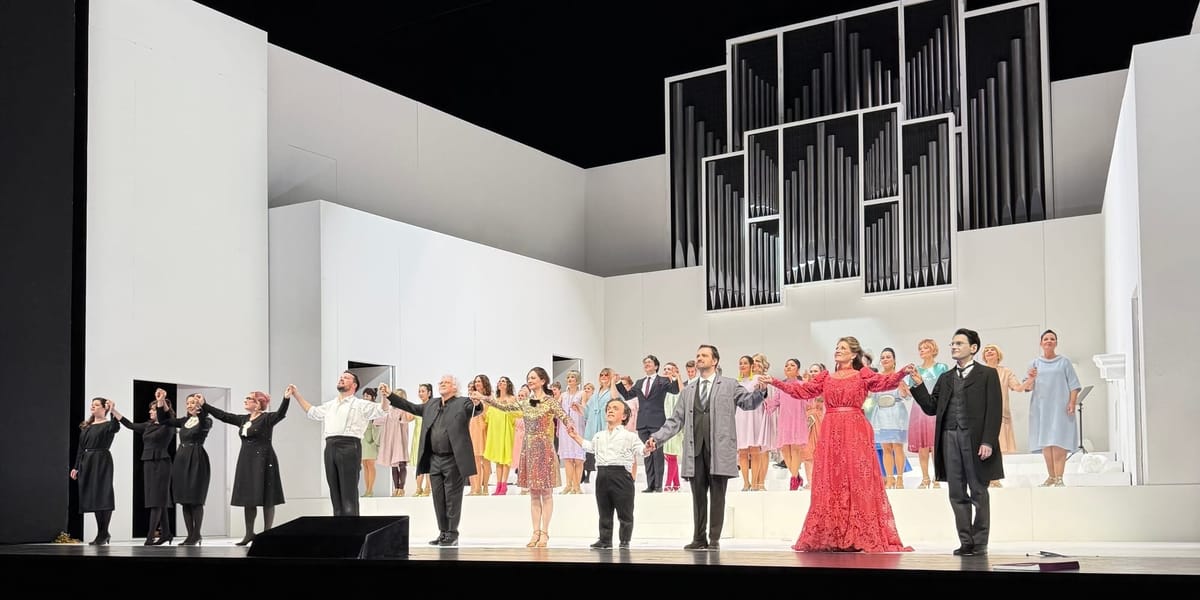
⭐️⭐️⭐️⭐️
🎭 Der Zwerg
🎶 Alexander von Zemlinksy
💭 Tobias Kratzer, 2024
🏛️ Deutsche Oper Berlin
🗓️ 10.12.2024
Experiencing an opera for the first time is a rare privilege, especially when it delivers extraordinary music, production, singing, and storytelling. Tobias Kratzer’s production of DER ZWERG at Deutsche Oper Berlin devastatingly delivers by transforming Alexander von Zemlinsky’s seemingly straightforward opera into a multi-faceted and searing exploration of the agony of self-perception, societal judgment, and rejection
Composed in 1922, DER ZWERG is steeped in autobiographical layers, rooted in the composer’s (partly) unrequited love affair with his piano student Alma Schindler, who would later marry Gustav Mahler (getting engaged to him just days after the breakup with Zemlinsky). A decade later, the composer processes this personal betrayal in this opera: the titular dwarf, gifted to the Infanta of Spain for her 18th birthday, is a talented musician but entirely unaware of his physical appearance having never seen a mirror, despite being mocked and dismissed by society. The Infanta plays along with his affections until, in a moment of cruel clarity, she forces him to see his reflection—a moment so shattering it leads to his tragic death.
The production brings these historical, autobiographical, and musical elements together brilliantly. The single-act opera opens with a chilling prologue set to Arnold Schönberg’s BEGLEITMUSIK ZU EINER LICHTSPIELSCENE (1930), setting the tone for the opera that follows. Schönberg was Zemlinsky’s brother in law and favorite student, and a certain musical and cultural rivalry is documented between the two. On stage, we witness a dramatised account of Zemlinsky’s rejection by Schindler, played out in a bourgeois drawing room: her initial flirtation, his confusion turning to obsession, and finally, her brutal rejection. The scene ends with Schindler forcing Zemlinsky to stare at his reflection in the wall mirror—cut to black. What would Zemlinsky have thought about both Schönberg and Schindler introducing his opera? We’ll never know. How much of his own humiliation is reflected in DER ZWERG, and how much of it is driven by his jealousy of Schönberg’s success, remains unspoken.
The opera itself is set not in a royal Spanish garden, but a contemporary and blindingly white concert hall. At one point, members of the Deutsche Oper orchestra join the dwarf in a performance for the Infanta, only to suddenly turn on him, smashing their instruments in a fit of rage. The setting and particularly the acting of the Infanta become a suffocating metaphor for the detachment of those in power, oblivious to the suffering they perpetuate
One of the most striking elements of Kratzer's interpretation is the ingenious double casting of the Dwarf: One portrayal is by an actor with dwarfism, showing how society perceives the character, while the other is by a singer without dwarfism, representing the dwarf’s internal perception of himself. These two parts are in constant conflict with one another, and we observe the Infanta being drawn back and forth to one over the other. In the pivotal scene of self-recognition, both versions stare at each other through the mirror before violently struggling through the reflection. Ultimately, the singer strangles the actor; the shock of realization has killed him.
This ZWERG is not just a tragic story—it is an uncompromising reflection on how society’s gaze destroys the vulnerable. The production is a theatrical and emotional tour de force that leaves the audience reeling, forcing us to confront our own complicity in perpetuating cycles of judgment and cruelty.
